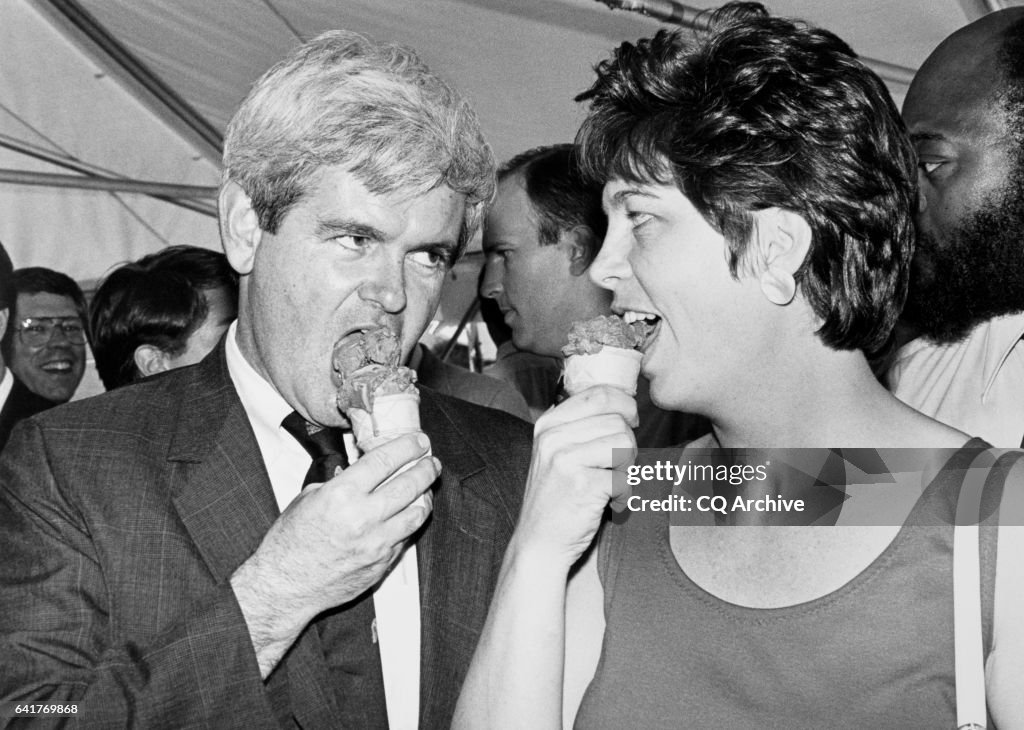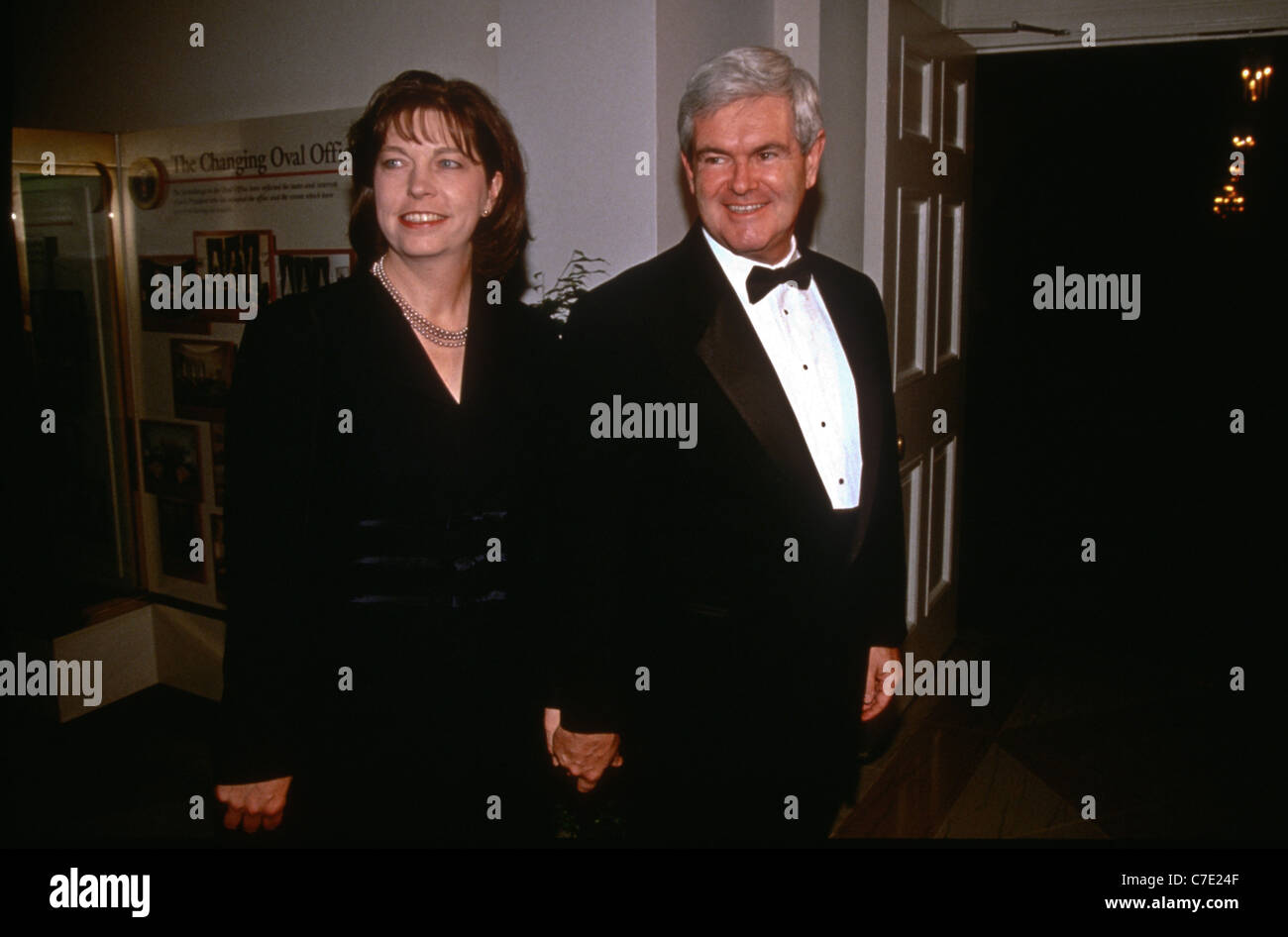Can a marriage built on political ambition and personal secrets truly withstand the relentless scrutiny of public life? The story of Marianne Ginther and Newt Gingrich is a stark illustration of the complexities that arise when personal lives collide with the pursuit of power, and the devastating consequences that can follow.
The September issue of Esquire magazine delivered a chilling portrait of a relationship, one that began with a whirlwind romance and ultimately fractured under the weight of infidelity, erratic behavior, and the ever-present glare of the political spotlight. Marianne Ginther, the second wife of the perennial Republican presidential nominee Newt Gingrich, offered an intimate, and at times, painful account of her life with the former House Speaker. Their story, far from being a simple tale of political spouses, delved into the depths of human relationships, exposing the vulnerabilities and betrayals that can lie hidden beneath the veneer of public image.
| Category | Details |
|---|---|
| Full Name | Marianne Ginther (formerly Marianne Gingrich) |
| Known For | Second wife of Newt Gingrich |
| Date of Birth | Information not readily available in the provided text. |
| Place of Birth | Information not readily available in the provided text. |
| Relationship with Newt Gingrich | Married in 1981, divorced |
| Meeting with Newt Gingrich | Met at a fundraiser in Ohio in 1980. |
| Marriage Duration | Approximately 18 years |
| Key Events |
|
| Father | Harry Ginther |
| Public Appearances | Featured in interviews detailing her relationship with Newt Gingrich, including Esquire and ABC News. |
| Reference | Esquire Magazine (for interview reference) - Note: Specific article details unavailable from the provided text. |
The genesis of the Gingrich-Ginther relationship was itself a matter of public record, yet the details revealed in Esquire provided a level of intimacy rarely afforded to the public. They met at a fundraiser in Ohio in 1980. Six months after the divorce of Newt Gingrich from his first wife Jackie Battley, Marianne Ginther became the second Mrs. Gingrich. The whirlwind romance quickly escalated, culminating in a marriage that would endure for nearly two decades, traversing the landscape of Washington politics, from the back benches to the pinnacle of power.
The interview unveiled a narrative of contrasts, juxtaposing the public persona of the ambitious politician with a more private reality marked by what was described as "wildly erratic behavior." The story she shared went "much, much deeper \u2014 a story of wildly erratic behavior that went back to the very first night they met, full of manic ups and downs, secrets and" a sentence that encapsulates the core of the story. The trajectory of their relationship included periods of intense closeness and also moments of profound distance, mirroring the inherent instability of a life lived under the relentless pressure of the political machine.
The public first saw a glimpse into the Gingrich-Ginther relationship when Newt Gingrich took the speaker's gavel. He "mentions Marianne in inaugural address taking speaker's gavel. I have my mom and my dad are here," and later his wife in an ABC news interview described her marriage and divorce.
The marriage unfolded during a period of intense political evolution for Gingrich. Marianne Ginther met Newt Gingrich in 1980 when he appeared at a fundraiser in Ohio. The early years of the marriage coincided with his ascendance within the Republican party. She was, by all accounts, a constant presence at his side. The couple briefly split in 1989 before reconciling. This suggests that the foundations of their marriage were tested early in the relationship.
The narrative is a reminder that political lives are not lived in a vacuum; they are inextricably linked with personal relationships. Marianne was both "his closest confidant and most important" to Newt.
The revelation of an affair, the subsequent divorce, and the public discourse that followed cast a long shadow. The timing of the divorce, and its impact on the public image of Newt Gingrich, was a critical point. The divorce took place in 1981. That the marriage began, after Newt asked her to marry him, she said, before he asked Battley for a divorce.
The details shared in Esquire were echoed in other media platforms, including an ABC News interview where Marianne provided a candid assessment of the challenges she faced. "Newt gingrich's second wife, marianne, sat down for an abc news interview in which she described her messy marriage and divorce from the former house speaker. The interview aired thursday night on." This underscores the depth of scrutiny to which the relationship was subjected.
The story offered an unflinching look at the personal cost of political ambition. The details from the Vanity Fair, the ABC News interview, and Esquire, all contribute to painting a multifaceted portrait of Marianne Ginther, far removed from the caricature often imposed on the wives of public figures.
The history of Gingrich's personal life is often intertwined with his political career. His marriage to Jackie Battley lasted nearly 20 years. Gingrich's decision to leave his wife of nearly 20 years, the former jackie battley, for marianne ginther, with whom he was having an affair, underscores the personal choices that can dramatically reshape the trajectory of a life. Six months later he married his second wife, marianne ginther.
The details of Marianne Ginther's life before and after her marriage to Newt Gingrich remain somewhat obscure. The available information predominantly focuses on her relationship with the former House Speaker, her role as his wife during his rise to prominence, and the eventual dissolution of their marriage. "Harry ginther, marianne's father, an," is one of the very few mentions of her family.
The interview published in Esquire represents only one perspective. The complete story, with all its nuances, may never be fully known. But the fragments that have emerged offer a powerful lesson about the interplay between personal and public life, reminding us that even the most carefully constructed public images can conceal a complex and sometimes troubled reality.
The broader implications of the narrative extends beyond the personal realm, touching upon the complex interplay between public image and private behavior, a theme that continues to resonate in the contemporary political landscape. The interview in Esquire served as a reminder of the human element inherent in every political narrative, the vulnerability that exists even in the most powerful figures, and the lasting impact of personal choices on the trajectory of a life.


